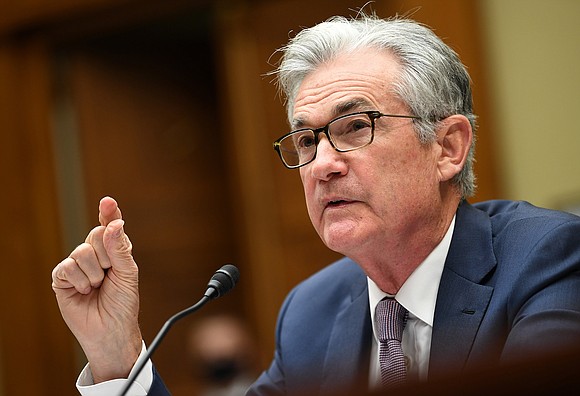The Fed expects to raise rates sooner than you'd think
CNN/Stylemagazine.com Newswire | 6/16/2021, 2:12 p.m.

Originally Published: 16 JUN 21 14:13 ET
Updated: 16 JUN 21 14:35 ET
By Anneken Tappe, CNN Business
(CNN) -- The Federal Reserve expects to raise interest rates in 2023, according to new economic projections the central bank published Wednesday.
That's a sharp contrast from the Fed's previous forecast in March, in which the central bank predicted rates would stay near zero for at least the next two years.
Some members of the Federal Open Market Committee -- which decides the central bank's policy -- are in favor of raising interest rates next year, the projections show.
The central bank also expects stronger growth, with real gross domestic product -- the broadest measure of economic activity -- climbing 7% in 2021, up from 6.5% in the March projections.
Rising inflation
But with stronger growth comes higher inflation. The Fed has upped its 2021 inflation forecast by a whole percentage point to a brisk 3.4%, reflecting the increases in prices across the spectrum for both consumers and producers.
That's well above the Fed's 2% goal. However, the Fed is still signaling confidence this burst of inflation will pass. The median Fed official expects inflation to ease to just 2.1% in 2022, up just slightly from the March projection. Forecasts for 2023 inflation barely budged higher. In its policy statement, the Fed again noted that "inflation has risen," but stressed this "largely" reflects transitory factors.
For now, the Fed will leave interest rates unchanged and continue its quantitative easing program, including buying at least $80 billion in Treasury securities and at least $40 billion in of mortgage-backed securities, according to its policy update Wednesday.
Stocks sink
The Dow fell 300 points and the S&P 500 and Nasdaq both fell 0.8% on the news.
Stocks had been plodding along for the past several weeks in anticipation of Wednesday's Fed update. Investors had been mostly complacent, even as multiple inflation reports showed prices were rising more than expected. Still, investors expected the Fed to largely stay the course and keep rates near rock-bottom.
To Wall Street's credit, that's pretty much what the Fed did. Rates are still zero. But higher rates are potentially bad news for stocks down the road, as more expensive borrowing could eat into corporate bottom lines, ending the easy money policy of the past 15 months.
This is a developing story. It will be updated







